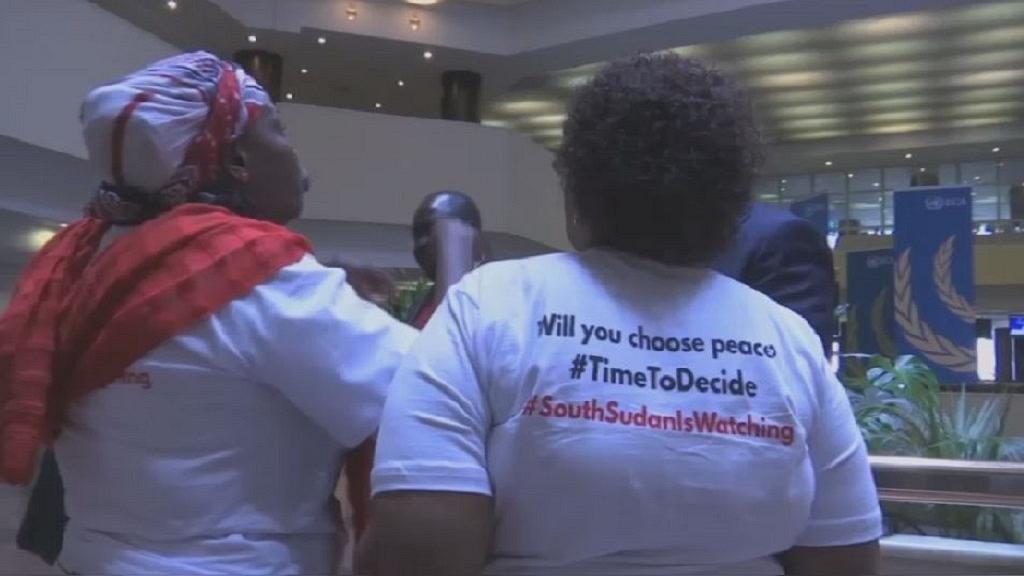South Sudan’s women activists have called for an end to conflict in the country, as delegates hold a forum in in Ethiopia’s capital, Addis Ababa in an attempt to jump-start a peace process.
Members of the South Sudan Women Coalition for Peace also used the meeting to demand an increase in the participation of women in all peace and development processes.
The coalition which represents refugee and diaspora communities, released a statement on the side-lines of the talks, calling for a 35 percent allocation in all upcoming processes.
We are wearing white today because we want to tell our leaders it is time for them to decide for our country, to decide for the peace. This is what the South Sudan people need.
Zainab Yassir, a member of the group and her colleagues made a point to speak with leaders attending the talks, reminding them of their duty to promote peace in the country.
“We are wearing white today because we want to tell our leaders it is time for them to decide for our country, to decide for the peace. This is what the South Sudan people need,” she said.
“The conflict which occurred in South Sudan since 2013 has affected women and children and elderly persons. It is continuing; the suffering of the innocent women and children is continuing, and up to now majority of the South. Sudanese people has lost hope” said Amer Deng, representative of Women’s Block of South Sudan.
Despite several agreements and ceasefires, fighting has rumbled on in South Sudan with barely any break since civil war erupted at the end of 2013, just two years after independence.
Troops loyal to President Salva Kiir clashed with forces loyal to Riek Machar, then the vice president. Tens of thousands of people have been killed.
The government and rebel groups signed the latest ceasefire in December in the Ethiopian capital, aiming to revive a pact reached in 2015. But the truce was violated within hours.
The conflict has forced almost 2.5 million people to seek refuge in Uganda, Kenya, Sudan, Ethiopia, the Democratic Republic of Congo and the Central African Republic. The U.N. says a further two million are displaced inside the country.
Children are at risk of malnutrition; many are unable to attend school and have been recruited by armed factions.
Women have reported being raped after their husbands were killed.
The forum in Addis was organised by the regional East Africa group, Intergovernmental Authority on Development (IGAD). The meeting between the government and rebel forces was held from May 17-21.
“South Sudanese stakeholders asked to be alone and continue the consultations among themselves. We agree to it and since yesterday we have intra South Sudanese consultation ongoing. And so far, as far as I can see, it’s going very well and it will be very beautiful and recommendable, and this will make the people of South Sudan very happy and very proud if the South Sudanese, without any interventions from outside could come to a solution and lead their country into peace and stability,” said Ismael Wais, the IGAD special envoy to South Sudan.
Agricultural production has also declined as insecurity has left sometimes entire villages abandoned and crops untended.
Aid groups warn that almost two-thirds of the population will need food aid this year to stave off starvation and malnutrition as agencies prepare for the “toughest year on record”.



